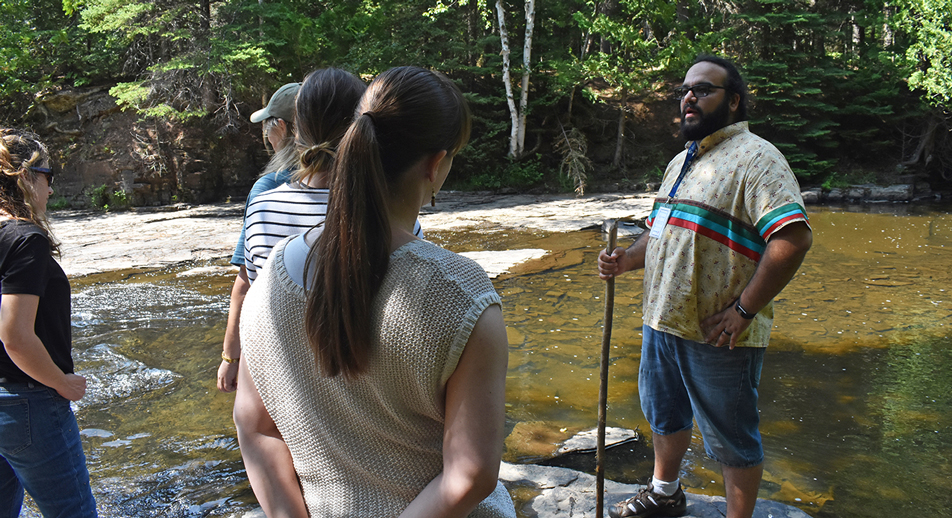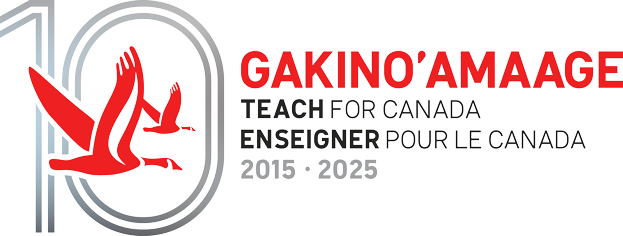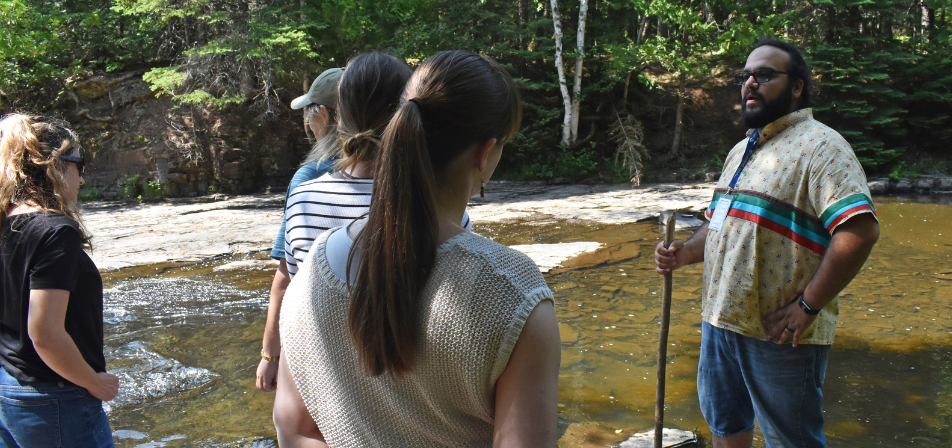Teach For Canada’s Summer Enrichment Program brings teachers together with Indigenous leaders, northern teachers, and education experts to prepare them to support student success in northern First Nations in Ontario and Manitoba. This year, the Summer Enrichment Program was fully digitized in response to the pandemic. Bryan Bellefeuille is one presenter for the 2020 program, focusing on land-based education. We asked Bryan about what he hopes teachers will take away from his session.

Teach For Canada’s cornerstone Summer Enrichment Program prepares teachers to support student success in the North.
Bryan Bellefeuille – Land-based Learning
Bryan is the father of three and is Anishinaabe of Nipissing First Nation. He is a firekeeper, a grass dancer, and a traditional fisherman. Bryan graduated from the Schulich School of Education at Nipissing University after completing an undergraduate in Mathematics. During his time enrolled he was invited to speak at the Perimeter Institute for Theoretical Physics regarding Indigenous Mathematics, as well as attend a session of the same topic at the Fields Institute of Mathematical Sciences. Bryan is currently an Ojibwe Language Teacher on the North Shore of Lake Huron. He previously worked with Indigenous people within the Ontario and Canadian Criminal Justice System as a Gladue Report Writer. During that time Bryan was part of the team that edited the Ontario curriculum for Grade 10 History in response to the Truth and Reconciliation Commission’s Call to Actions numbers 62 & 63.

Bryan Beullefeuille leading a session on Indigenous mathematics with Teach For Canada teachers in 2019.
Tell us about the approach you are taking to engage teachers online during this session.
Attempting to teach land-based learning to a group of 50 learners over a Zoom session is a tricky task. Normally we would be outside feeling and smelling trees, we would be interacting with expected and unexpected events with nature. We should be learning the traditional way, which my family has done since time immemorial.
Having made some Ojibwe Language videos using clips from a video game, I decided to take a similar approach to my session. The core of my session will be guided by me live. There will be prerecorded real-life moments of me in natural settings to assist students in being grounded in the moment and understanding the processes that are occurring. There will be prerecorded video game moments, this will help recreate moments for students that would normally be in the bush. You can watch a highlight reel here.
Why is land-based learning so important to integrate into children’s education?
Land-based learning has countless benefits when educating children. Much research has been done under the term “outdoor experiential education”, and when we combine those researched benefits with the understanding that this land-based learning is knowledge being passed down for generations to these students, then we realize that the benefits become immeasurable.
What are you hoping teachers will take away from your session?
I am hoping that teachers understand that Indigenous people hold such powerful knowledge that it can save lives in a modern context. I want them to know that it is important to teach that their family knowledge is important and valuable. I want them to know that to make space for Traditional Knowledge in unconventionally thought subjects, like mathematics, is not only worth their time but can change the world through the future actions of those students.
If other teachers were interested in learning more about land-based learning, what would you suggest they do, read, or learn?
At the end of my session for the Teach For Canada teachers, I provided a small guide. It is difficult to be one person to teach land-based learning with Traditional Knowledge and teachings. The guide asks teachers questions like, “Who would know historical teachings about it?” and “What places have Indigenous Knowledge holders about this topic?”. I remind teachers to have tobacco ready to gift to any knowledge holders and I remind them that information you learn from Traditional Knowledge holders may be sacred, which means you should not distribute it without its traditional context or permission from the teacher.
Traditional Indigenous Mathematics is a great place to start. Math in a cultural context was examined and written into books that teachers can use as a resource. Here’s an example. I myself would love to create a book for my own peoples and teachings.






